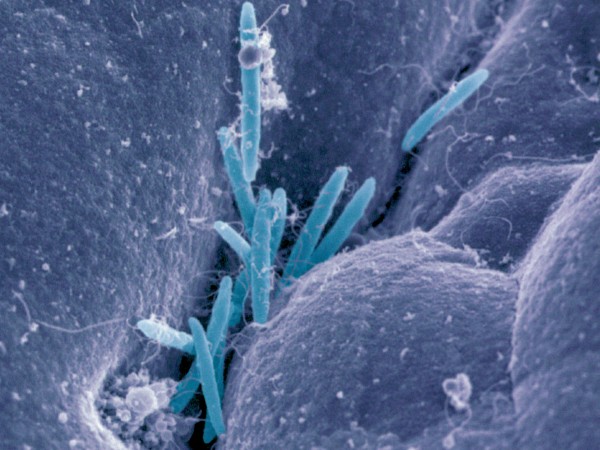PNAS:共生细菌可以防止食物过敏原致敏

美国芝加哥大学等处的研究人员发现,饲养于无菌环境或刚出生时给予抗生素的老鼠,缺乏一种似乎可预防食物过敏的常见肠道细菌。相关文章发表于2014年8月25日的《PNAS》杂志上。
这种称为梭状芽孢杆菌(Clostridia)的细菌,似乎可减少老鼠对花生过敏的可能性,研究人员希望探究对人类是否也如此。
同时,根据刊登于美国《国家科学院学报(Proceedings of the National Academy of sciences)》的报告,研究人员发现,在老鼠长大后给予含有梭状芽孢杆菌的益生菌,可能扭转过敏情况。
美国芝加哥大学(University of Chicago)食物过敏教授、资深研究作者纳格勒(Cathryn Nagler)表示:“诸如过度使用抗生素、高脂肪饮食、剖腹产、移除常见病原体、甚至是配方喂养,都会影响与我们共同演化出来的微生物。”
纳格勒说:“从我们的研究结果可得知,这会增加对食物过敏的机率。”
原文摘要:
Commensal bacteria protect against food allergen sensitization
Andrew T. Stefka, Taylor Feehley, Prabhanshu Tripathi, Ju Qiu, Kathy McCoy,Sarkis K. Mazmanian, Melissa Y. Tjota, Goo-Young Seo, Severine Cao, Betty R. Theriault,Dionysios A. Antonopoulos, Liang Zhou, EuGENE B. Chang, Yang-Xin Fu and Cathryn R. Nagler
Environmentally induced alterations in the commensal microbiota have been implicated in the increasing prevalence of food allergy. We show here that sensitization to a food allergen is increased in mice that have been treated with antibiotics or are devoid of a commensal microbiota. By selectively colonizing gnotobiotic mice, we demonstrate that the allergy-protective capacity is conferred by a Clostridia-containing microbiota. Microarray analysis of intestinal epithelial cells from gnotobiotic mice revealed a previously unidentified mechanism by which Clostridia regulate innate lymphoid cell function and intestinal epithelial permeability to protect against allergen sensitization. Our findings will inform the development of novel approaches to prevent or treat food allergy based on modulating the composition of the intestinal microbiota.
作者:环球科学

